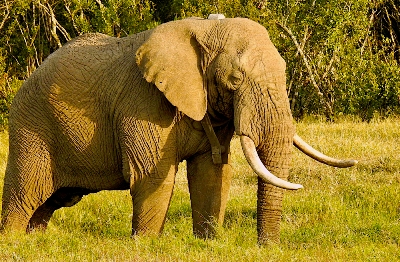The Masoka Community in Zimbabwe speak out.

The Masoka community, on behalf of communities in Botswana, Namibia, Zambia and Zimbabwe, add their voices to the current global media debate on trophy hunting and sustainable use.
Themes: Conservation, NGOs
This is a letter that adds the voices of rural communities to the current global debate on trophy hunting. This letter is informed by those who live with wildlife and who are concerned that their livelihoods are protected and their rights upheld. These voices are rarely heard but they are vital to any healthy debate about conservation.
More…
Jan 23, 2020

Perfidious Albion

Moves by the United Kingdom to Ban the Import of Hunting Trophies - An Analysis by Rowan B. Martin.
Themes: Conservation, Policy, NGOs
This document reviews a debate which took place at Westminster Hall in the UK Houses of Parliament on the 2nd October 2019 in which the advocacy by Animal Rights parliamentary members was extreme. In this document I challenge some of the misinformation that was prevalent. Much of the ill-informed debate was taken up with trophy hunting of lions while ignoring the social, ecological and economic realities of the rural population and their resource base in Africa.. Zac Goldsmith (Minister for DIFD (Department for International Development) and DEFRA (Department for Environment, Food & Rural Affairs) has initiated a ‘consultative process’ which closes on the 25th January 2020. This paper will be submitted to the Committee responsible for the consultations.
More…
Jan 07, 2020

The Immorality of Saving Elephants.

An opinion piece on the enduring debate about Elephant Conservation following the recent CITES meeting that rewarded those with unsuccessful conservation records over those with manifest successes.
Themes: Conservation
More…
Sep 16, 2019
Indigenous land rights in the Amazon Basin.
Themes: Human rights, Indigenous people, Conservation, REDD, Policy
Si no se protege a los pueblos indígenas no se está protegiendo la Amazonía. Los bosques amazónicos están protegiendo el planeta y mitigando el cambio climático por lo tanto es una prioridad alinear las políticas para proteger al mismo tiempo: territorio, pueblos indígenas y bosques. . If indigenous people are not protected then nor is the Amazon. The Amazon forest protects the planet and mitigates climate change which means that it is a priority to align those policies that protect land, indigenous peoples and the forest.
More…
Sep 05, 2019
Trophy hunting for conservation and development in Namibia?

The limitations of economic benefits and the role of science
Themes: Conservation, Indigenous people, NGOs, Parks
More…
Mar 08, 2019
The Alarming Truth Behind Deforestation

Shining the light on the rainforest floor to reveal the growing problem of deforestation.
Themes: Agriculture, Conservation
It’s no secret that the total global rainforest area is decreasing drastically, particularly in Central America and there are multiple factors contributing to this changing landscape including large and small scale architecture, logging and cattle ranching.
More…
May 11, 2016
Elephant Engagements and Indigenous Peoples

Borders, Boundaries, and Barriers in Southern Africa
Themes: Conservation, Indigenous people, Parks
Elephants figure prominently in indigenous peoples’ stories, myths, and memory. Most people in southern Africa do not want to see elephants destroyed; rather, they would prefer to see effective practices and policies put in place that reduce human-elephant conflict.
More…
Dec 19, 2015

Why is ‘Just Conservation’ only about people?

Themes: Conservation
'The Just Conservation' site exists to promote debate, raise awareness, promote connection and facilitate action. As such it means we publish a wide variety of views, and we do not necessarily agree with all of them. Recently two controversial academic authors, Helen Kopina and Elle Ouimet, have published a paper in which they asserted that critics of conservation are 'opposed to conservation' (Please note below for the link). We disagree with that characterisation. Conservation is a broad church and we would call ourselves conservationists because we are critical friends of many aspects of it. But that's just our view! We invited these authors to put their perspective forward in a form suitable for this site, and in particular to explain why it might be problematic to 'oppose' (be critical of) conservation. The result, if you accept their arguments, suggests an entirely new way in which 'just conservation' should be approached. As ever, comments are welcome.
More…
Oct 07, 2015










